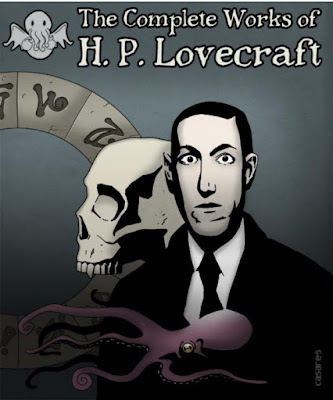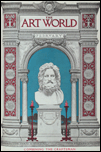HISTORY OF
ENGLISH LITERATURE
FROM
"BEOWULF" TO SWINBURNE
BY
ANDREW LANG, M.A.
LATE HON. FELLOW OF MERTON COLLEGE OXFORD
NEW IMPRESSION
LONGMANS, GREEN AND CO.
39 PATERNOSTER ROW, LONDON
FOURTH AVENUE & 30th STREET, NEW YORK BOMBAY, CALCUTTA, AND MADRAS
1921
[Pg v]
A Preface to a book on the History of English Literature is apt to be an apology, for a writer must be conscious of his inability to deal with a subject so immense and so multiplex in its aspects. This volume does not pretend to be an encyclopædia of our literature; or to include all the names of authors and of their works. Selection has been necessary, and in the fields of philosophy and theology but a few names appear. The writer, indeed, would willingly have omitted not a few of the minor authors in pure literature, and devoted his space only to the masters. But each of these springs from an underwood, as it were, of the thought and effort of men less conspicuous, whom it were ungrateful, and is practically impossible, to pass by in silence. Nevertheless the attempt has been made to deal most fully with the greatest names.
The author's object has been to arouse a living interest, if it may be, in the books of the past, and to induce the reader to turn to them for himself. Scantiness of space forbids the presentation of extracts; for poetry there is perhaps no better selection than that of the Oxford Book of Verse by Sir Arthur Quiller-Couch. For prose, the[Pg vi] Anthologies of Mrs. Barnett and Mrs. Dale may be recommended.
It is unhappily the fact that the works of a majority of the earlier authors are scarcely accessible except in the publications of learned societies or in very limited editions; but from Chaucer onwards the Globe Editions are open to all; and the great Cambridge "History of English Literature" is invaluable as a guide to the Bibliography. It is better to study even a little of the greatest authors than to read many books about them. If the writer should perchance succeed in bringing any readers to the works of the immortals his purpose will be fulfilled But readers, like poets and anglers, are "born to be so"; and when born under a fortunate star do not need to be allured or compelled to come into the Muses' paradise.
That sins of commission as well as of omission will be discovered the author cannot doubt, for through much reading and writing they that look out of window are darkened, and errors come.
Preface v
List of Authors xi
CHAPTER
I. Anglo-Saxon Literature: The Anglo-Saxon Way of Living — Minstrels, Story-Tellers, and Stories — Beowulf — The Wanderer — The Plaint of Deor — The Seafarer — Waldhere — The Fight at Finnsburg 1
II. Anglo-Saxon Christian Poetry: Cædmon — Cynewulf — Andreas — Dream of the Rood — Elene — Riddles — Phœnix 16
III. Anglo-Saxon Learning and Prose: Latin among the Anglo-Saxons — Bede — Alcuin — Alfred — The Anglo-Saxon Chronicle — The Monks and Learning — Ælfric 23
IV. After the Norman Conquest: Latin Literature — Walter Map — Changes Since the Conquest 35
V. Geoffrey of Monmouth: The Stories of Arthur 42
VI. Layamon's "Brut": Ormulum — Ancren Riwle — The Owl and the Nightingale — Lyrics — Political Songs — Robert of Gloucester — Cursor Mundi — Devotional Books — Minot 48
VII. The Romances in Rhyme: Tristram — Havelok — King Horn — Beues of Hamtoun — Guy of Warwick — Arthur and Merlin — The Tale of Troy — The Story of Troy from Homer to Shakespeare — King Alisaundre 60
VIII. Alliterative Romances and Poems: Gawain and the Green Knight — Pearl — Huchowne 72
IX. Chaucer: Early Poems — The Dethe of the Duchesse — Other Early Poems — Troilus and Criseyde — The Canterbury Tales 78
X. "Piers Plowman," Gower 99
XI. The Successors of Chaucer: Lydgate — Occleve — Hawes110
XII. Late Mediaeval Prose: Wyclif — Chaucer's Prose Style — Trevisa — Mandeville — Pecock: "The Repressor" — Capgrave — Lord Berners115
XIII. Malory124
XIV. Early Scottish Literature: Barbour — Wyntoun — The Kingis Quhair — Henryson — Dunbar — Blind Harry — The Buke of the Howlat — Gawain Douglas — Sir David Lyndsay129
XV. Popular Poetry. Ballads
Professional Poetry: Skelton — Barclay147
XVI. Rise of the Drama: Heywood — Ralph Roister Doister — Gammer Gurton's Needle — "Gorboduc"153
XVII. Wyatt and Surrey. Gascoigne. Sackville: The Earl of Surrey — Tottel's Miscellany — Gascoigne — Sackville163
XVIII. Prose of the Renaissance: Elyot — Ascham — Lyly's Euphues — Sidney — Sidney's "Defence of Poesie" Spenser172
XIX. The Elizabethan Stage and Playwrights: John Lyly — Peele — Greene — Lodge — Nash — Marlowe — Kyd — Shakespeare — The Sonnets — Later Plays — Jonson — Jonson's Prose193
XX. Other Dramatists: Beaumont and Fletcher — Chapman — John Marston — Dekker — Middleton — Heywood — Webster — Massinger — Ford — Shirley242
XXI. Elizabethan and Jacobean Prose Writers: Hooker — "Martin Marprelate" — Bacon — Raleigh — Overbury — Translators — Pulpit Eloquence265
XXII. Late Elizabethan and Jacobean Poets: Minor Lyrists — Drayton — Daniel — Davies — Giles and Phineas Fletcher — Corbet — Sir John Beaumont283
XXIII. Late Jacobean and Caroline Prose: Burton — Herbert of Cherbury — Browne.
Caroline Prose: Milton — Jeremy Taylor — Thomas Fuller — Hobbes — Izaak Walton — John Bunyan — Clarendon303
XXIV. Caroline Poets: Crashaw — Herbert — Vaughan — Herrick — Carew — Lovelace — Suckling — Habington — Cartwright — Davenant — Cowley — Denham — Sherburne — Stanley — Browne — Cotton — Waller — Marvell — Milton — Samuel Butler328
XXV. Restoration Theatre: Congreve — Vanbrugh — George Farquhar — Otway — Nat Lee — Dryden358
XXVI. Augustan Poetry: Alexander Pope — Prior — Gay — Ambrose Philips — Tickell382
XXVII. Augustan Prose: Steele — Addison — Swift — De Foe394
XXVIII. Georgian Poetry I.: Edward Young — James Thomson — William Collins — Thomas Gray — The Wartons — John Dyer — William Shenstone422
XXIX. Georgian Poetry II.: Thomas Chatterton — William Cowper — Literature in Scotland (1550-1790) — Robert Burns — Charles Churchill — George Crabbe434
XXX. Georgian Prose I.: The Great Novelists — Richardson — Henry Fielding — Tobias Smollet458
XXXI. Georgian Prose II.: Samuel Johnson — Oliver Goldsmith — Edmund Burke — Horace Walpole — Laurence Sterne — David Hume — Robertson — Edward Gibbon — Richard Brinsley Sheridan — Lady Mary Wortley Montagu — Junius471
XXXII. The Romantic Movement: Coleridge — Walter Scott — William Wordsworth — Robert Southey — Shelley — Byron — Keats — Walter Savage Landor497
XXXIII. Later Georgian Novelists: Frances Burney — Mrs. Radcliffe — Maria Edgeworth — Charles Brockden Brown — Jane Austen — Walter Scott, the Novelist — James Fenimore Cooper — Washington Irving.
Magazines and Essayists: Charles Lamb — Leigh Hunt — William Hazlitt — Thomas de Quincey530
XXXIV. Poets after Wordsworth: Philip Freneau — William Cullen. Bryant — John Greenleaf Whittier — Henry Wadsworth Longfellow — Alfred Tennyson — Robert Browning — Edgar Allan Poe — Ralph Waldo Emerson — James Russell Lowell — Matthew Arnold.
General Writers: John Ruskin560
XXXV. Late Victorian Poets: Edward FitzGerald — George Meredith — Elizabeth Barrett Browning — Christina Rossetti — Dante Gabriel Rossetti — William Morris — Swinburne.
Poetic Underwoods594
XXXVI. Latest Georgian and Victorian Novelists: Dickens — Thackeray — The Brontë Sisters — Nathaniel Hawthorne — Oliver Wendell Holmes — Charles Kingsley — George Meredith — Anthony Trollope — George Eliot — Robert Louis Stevenson — Minor Novelists609
XXXVII. Historians: Thomas Babington Macaulay — Thomas Carlyle — James Anthony Froude — Edward Augustus Freeman — William Hickling Prescott — John Lothrop Motley — J. S. Mill — Cardinal Newman — W. E. H. Lecky643
Index
The PDF might take a minute to load. Or, click to download PDF.
If your Web browser is not configured to display PDF files.
No worries, just click here to download the PDF file.



.jpg)






.jpg)
